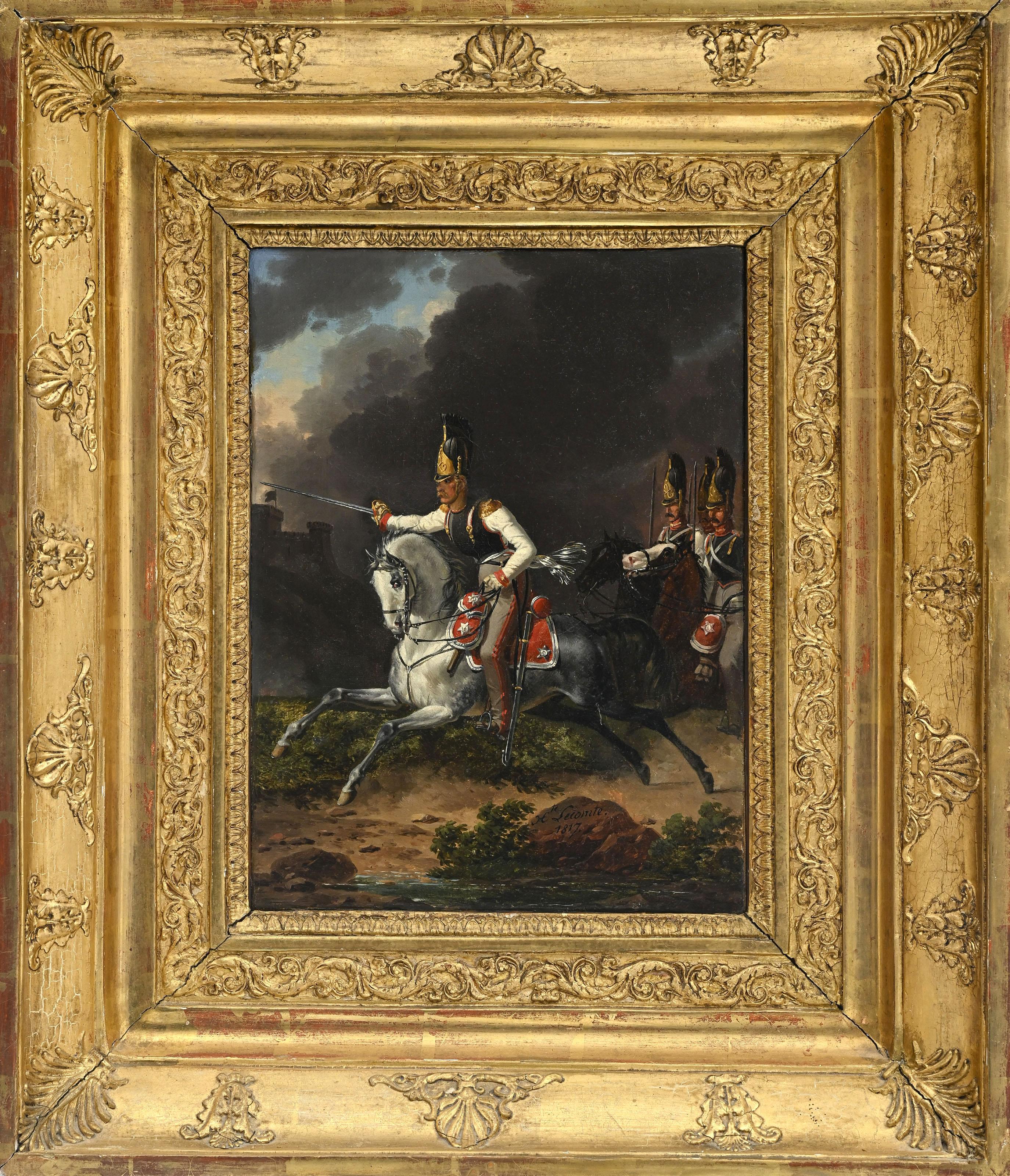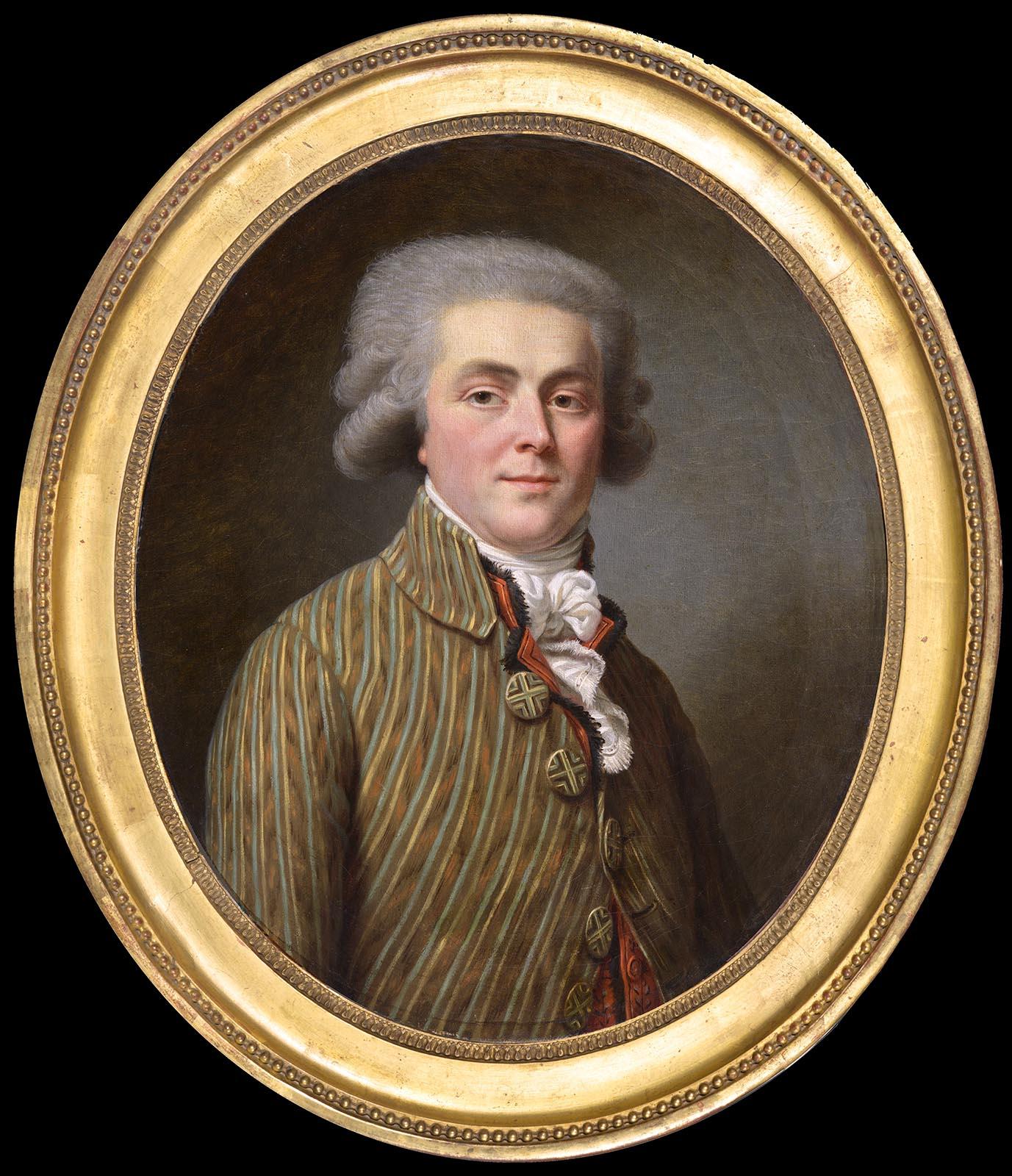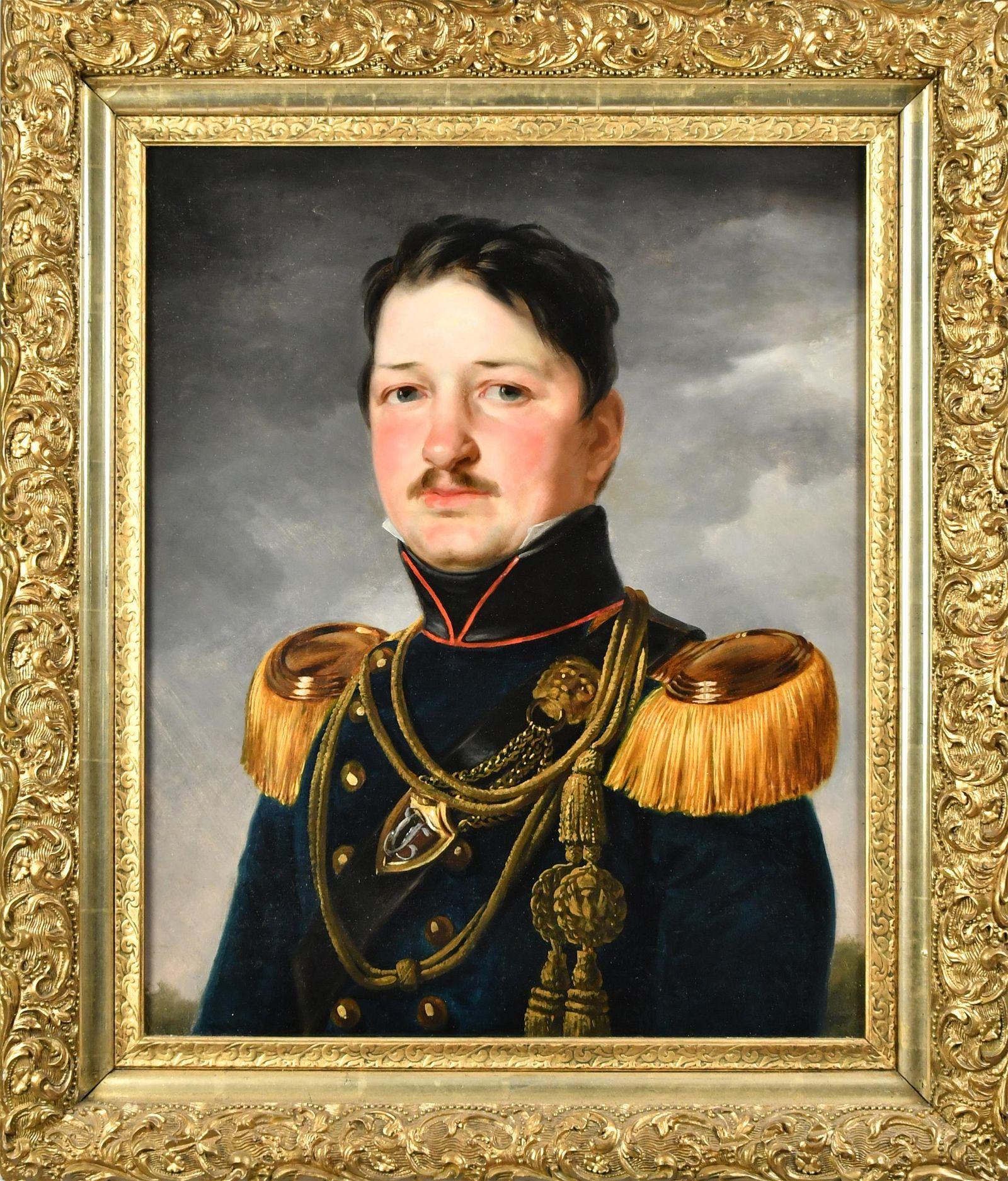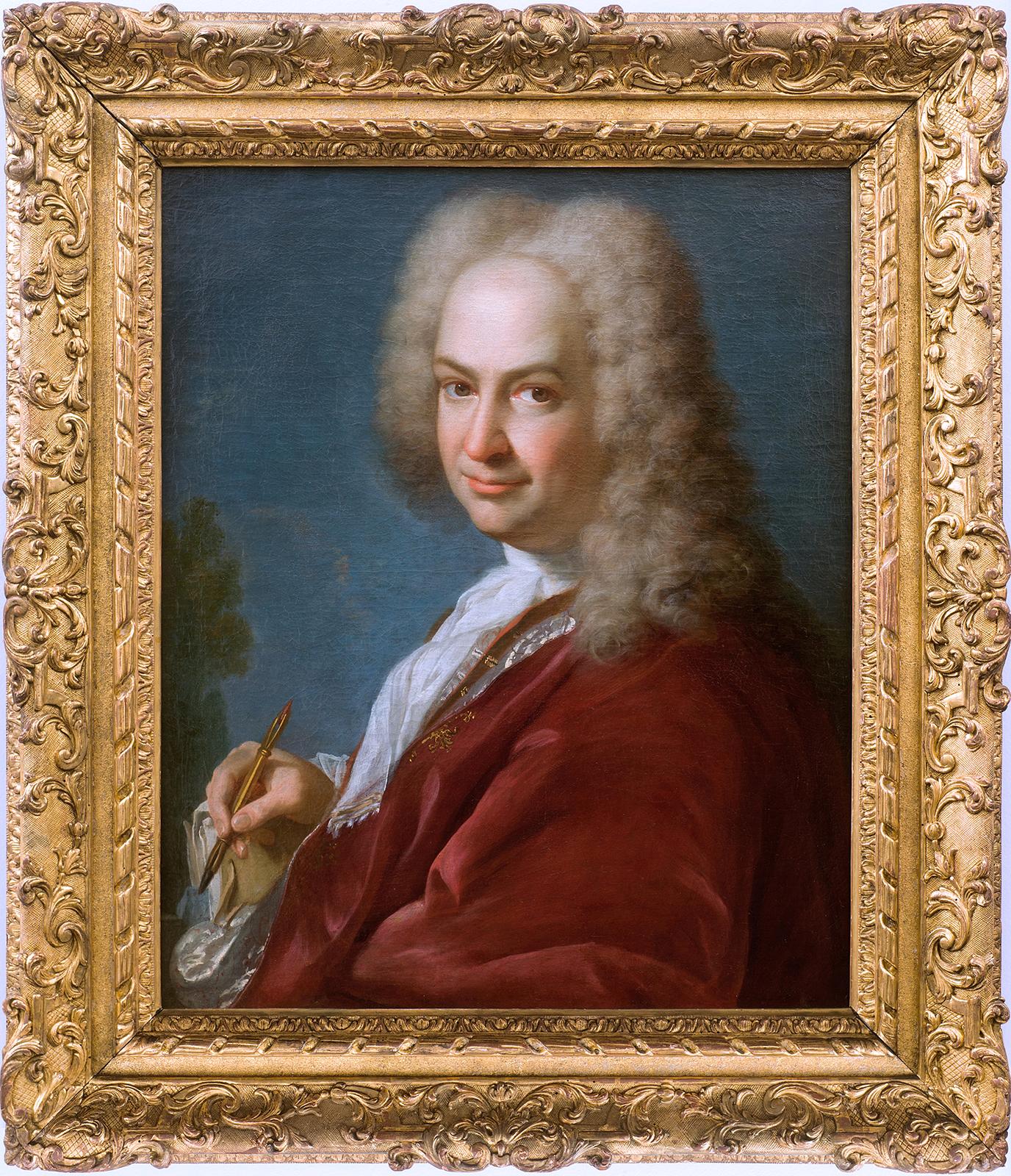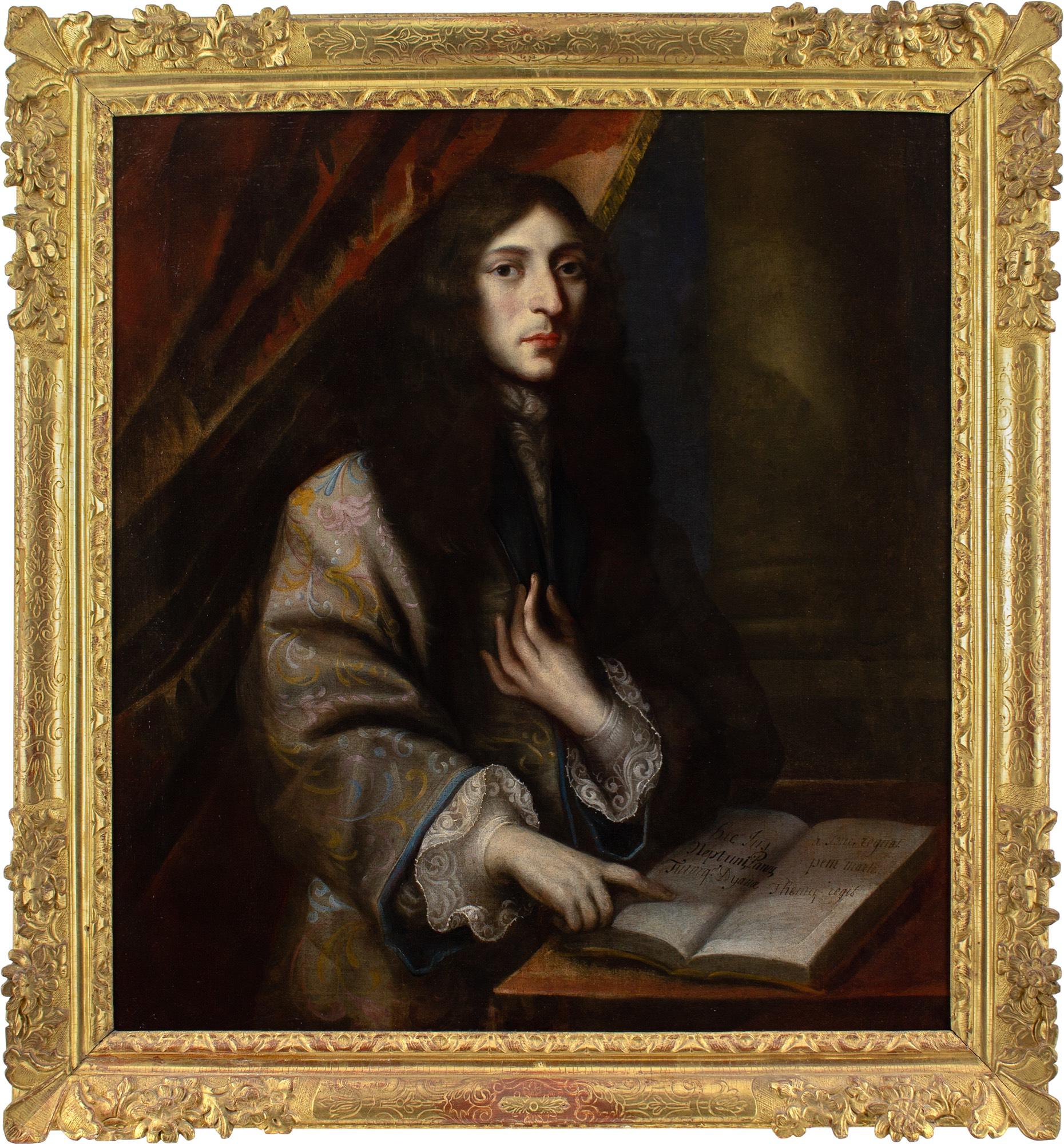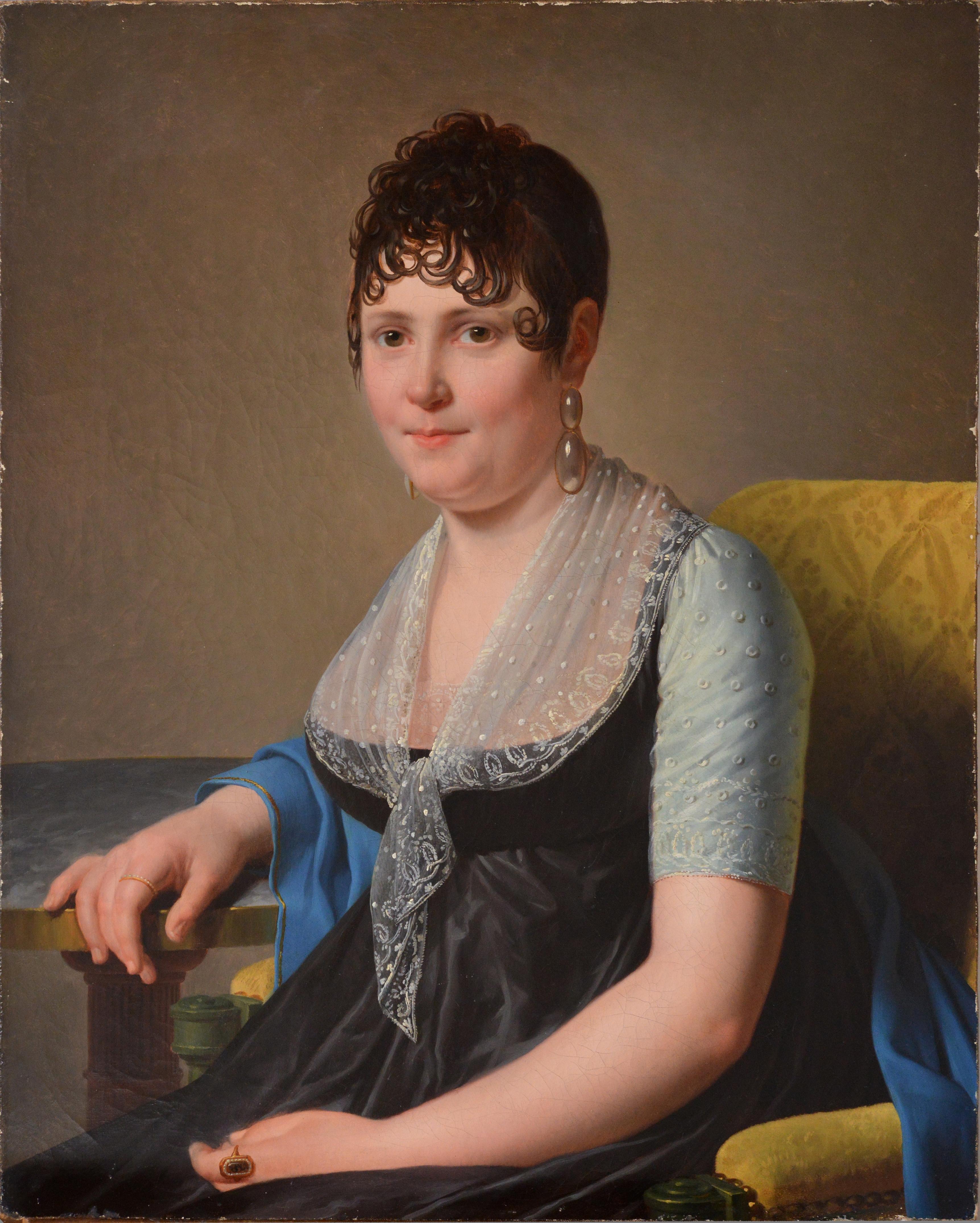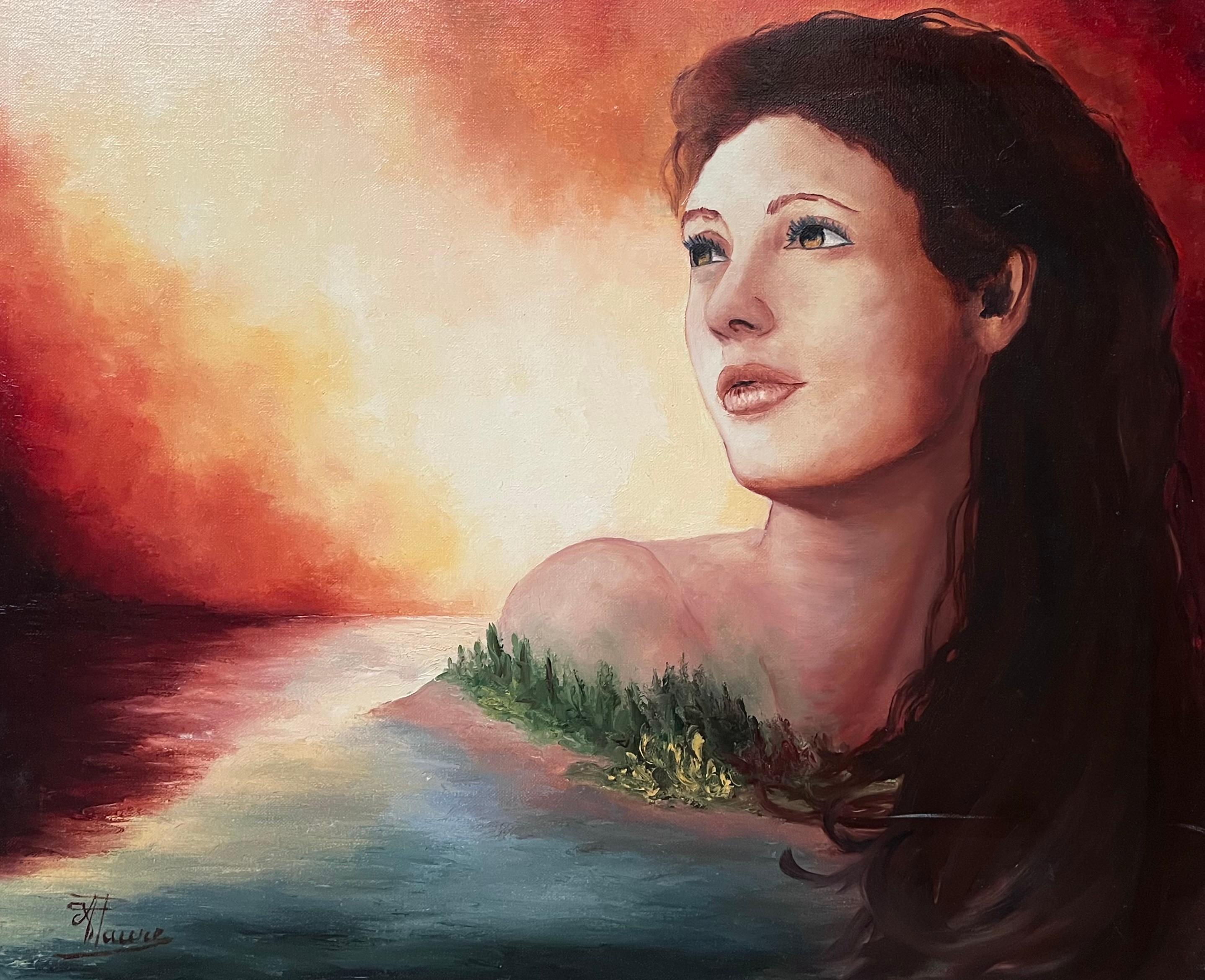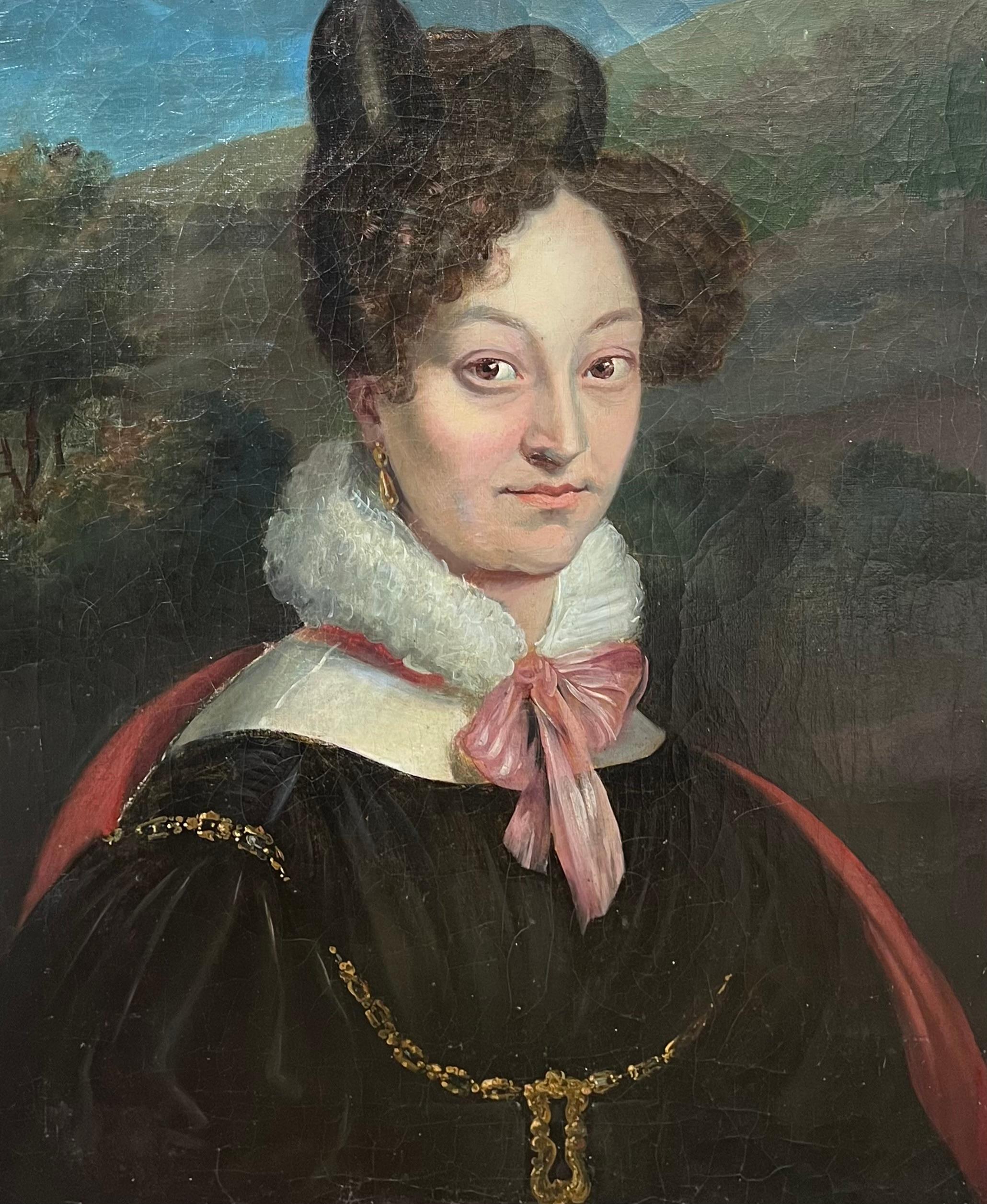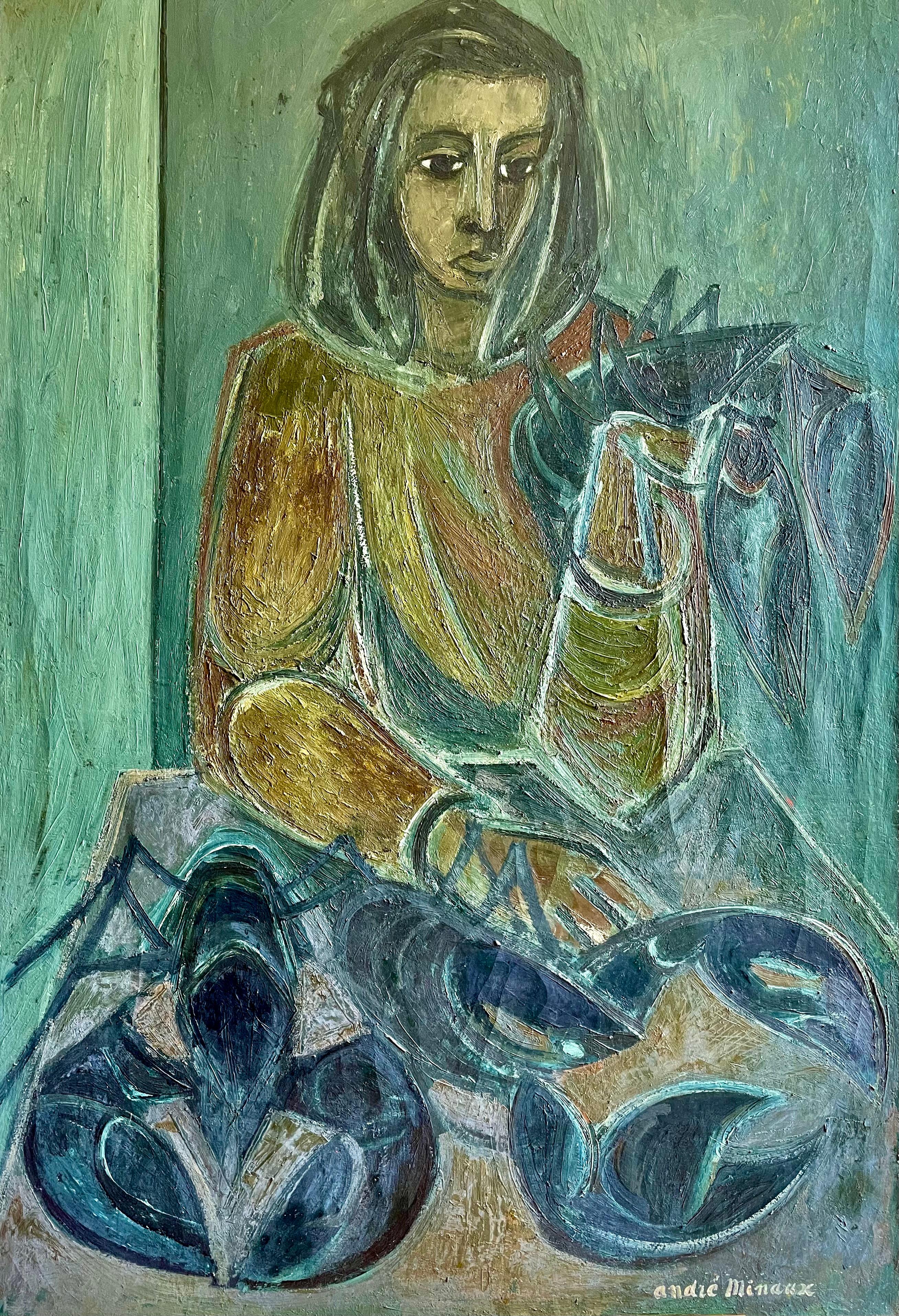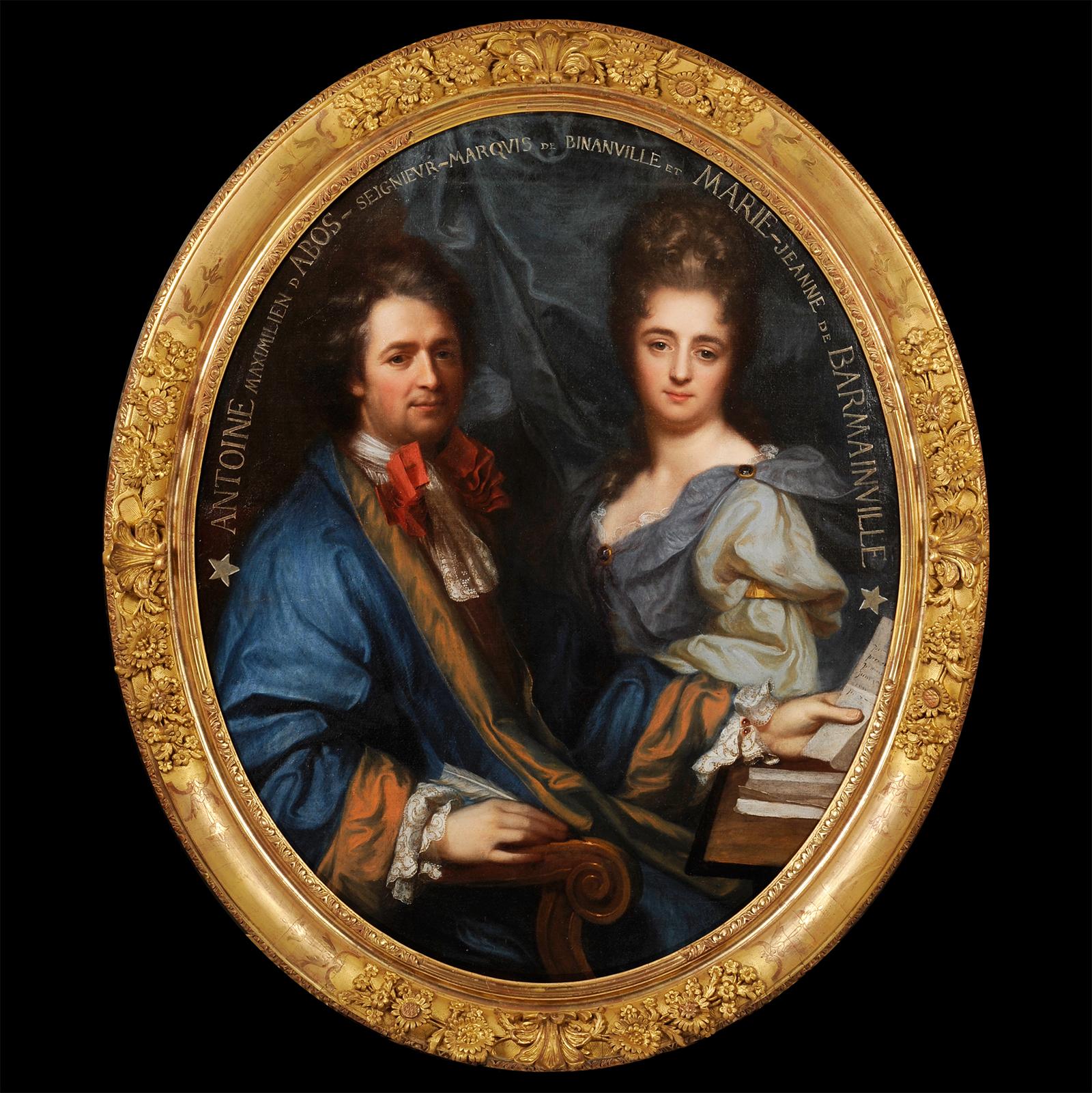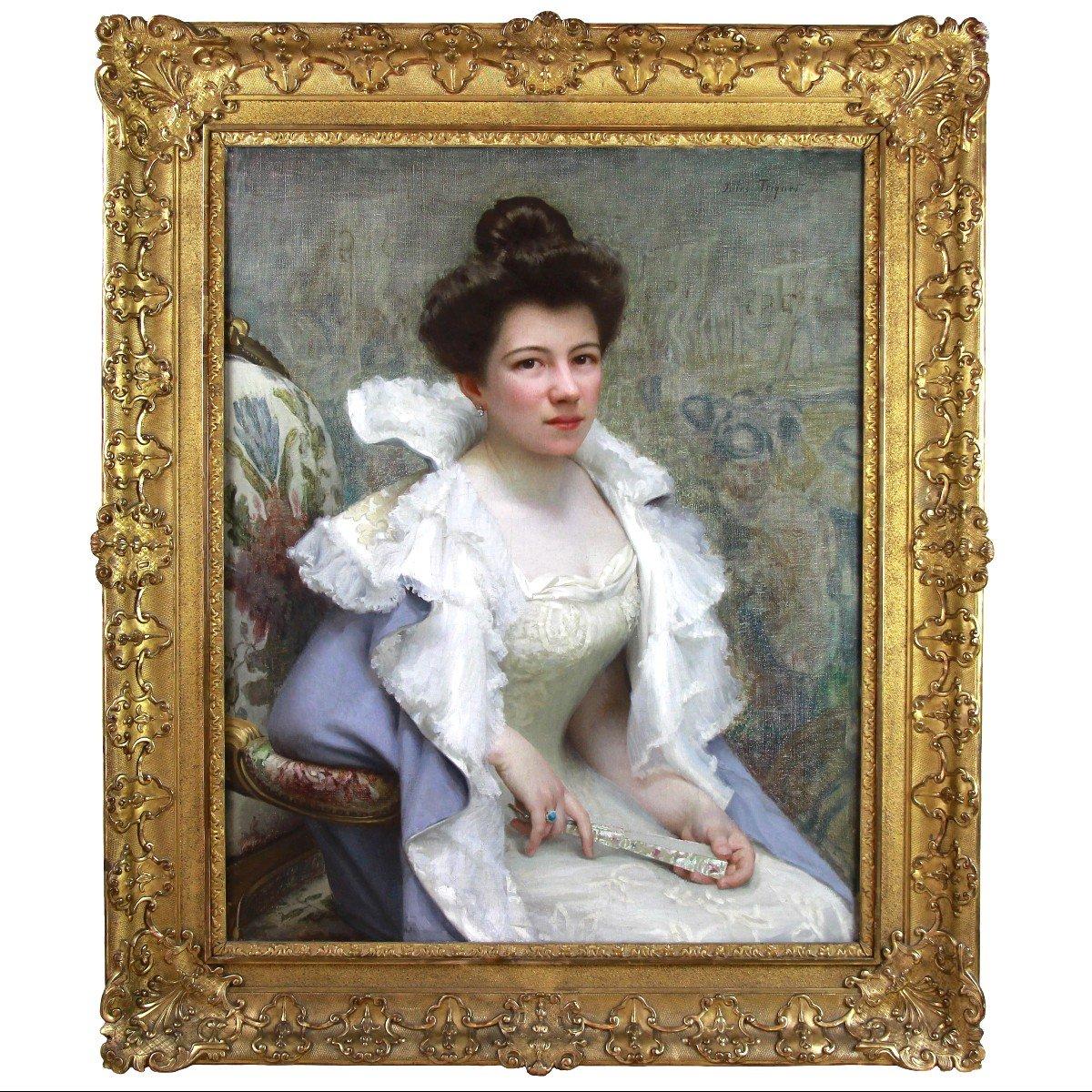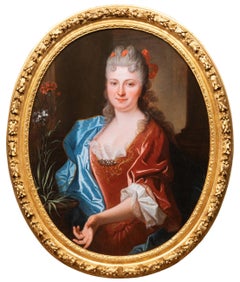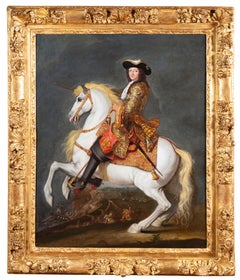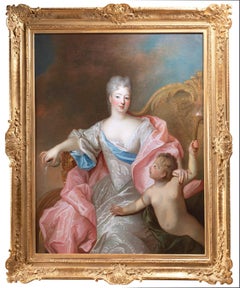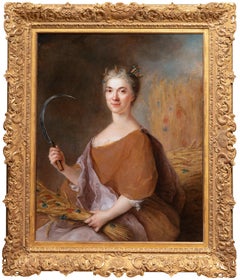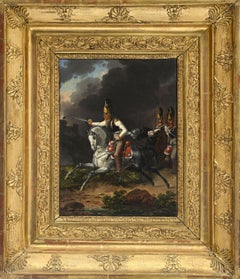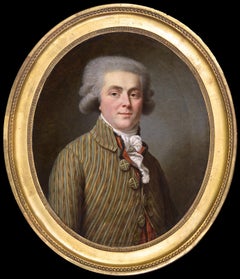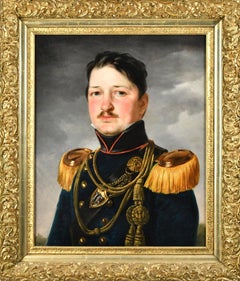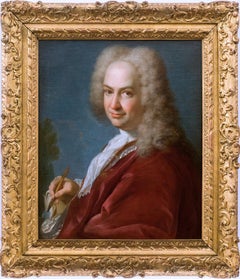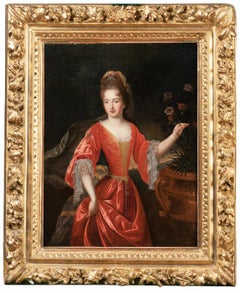
18th century, Paris, Workshop Of Pierre Gobert, Françoise-Marie de Bourbon
View Similar Items
Want more images or videos?
Request additional images or videos from the seller
1 of 13
18th century, Paris, Workshop Of Pierre Gobert, Françoise-Marie de Bourbon
About the Item
- Attributed to:Pierre Gobert (1662 - 1744, French)
- Dimensions:Height: 25.99 in (66 cm)Width: 21.46 in (54.5 cm)Depth: 1.97 in (5 cm)
- Medium:
- Movement & Style:
- Period:Late 17th Century
- Condition:Professionnaly restored and revarnished. Ready to be hanged on the wall. Canvas relined.
- Gallery Location:PARIS, FR
- Reference Number:1stDibs: LU2433211850042
About the Seller
No Reviews Yet
Vetted Professional Seller
Every seller passes strict standards for authenticity and reliability
1stDibs seller since 2023
15 sales on 1stDibs
Typical response time: 1 to 2 days
Authenticity Guarantee
In the unlikely event there’s an issue with an item’s authenticity, contact us within 1 year for a full refund. DetailsMoney-Back Guarantee
If your item is not as described, is damaged in transit, or does not arrive, contact us within 7 days for a full refund. Details24-Hour Cancellation
You have a 24-hour grace period in which to reconsider your purchase, with no questions asked.Vetted Professional Sellers
Our world-class sellers must adhere to strict standards for service and quality, maintaining the integrity of our listings.Price-Match Guarantee
If you find that a seller listed the same item for a lower price elsewhere, we’ll match it.Trusted Global Delivery
Our best-in-class carrier network provides specialized shipping options worldwide, including custom delivery.More From This Seller
View All18th c. French Portrait of a Lady by Jean Ranc (1674 - 1735), Paris circa 1700
Located in PARIS, FR
Portrait of a Lady with carnations
By Jean Ranc (Montpellier 1674 - Madrid 1735), circa 1700
Oil on canvas in oval shape,
Dimensions: h. 35.82, w. 28.34 in.
Period Louis XIV giltwood and carved frame with laurel leaves.
Framed dimensions: h. 42.52 in, w. 33.85 in.
Provenance: Collection of the Marquis de Bailleul at the Château d'Angerville-Bailleul (before 1942).
To be included in the catalog raisonné of the artist by Stephane Perreau
Important portrait of a young woman depicted half-length turned three-quarters, her face looking at the viewer.
Dressed in a brick red velvet dress, an elegant blue scarf envelops her figure.
Hair styled “a la Fontange”, her powdered hair is raised and tied at the back with a red ribbon, several curly locks escape from her bun and fall on her back and shoulders.
The perfectly oval face with regular features dominated by her straight nose is softened by her gray eyes with slightly lowered lids. The red tinged skin tones on the cheeks and cheekbones color the face and make the portrait come alive.
The young woman is portrayed standing near a pot of carnations. Her strongly lighted figure stands out against an architectural background of columns.
The artist's palette is made of contrasts opposing warm to cold hues. The icy electric blue contrasts with the fiery brick red, the hair powdered with white accentuates even more the flush of the cheeks.
The left arm bent at the elbow, extending the open hand with slightly bent fingers in the foreground brings depth to the composition.
Our portrait, an interesting testimony in the corpus of works of the painter, is part of his youthful period, around 1700-1705.
The former belonging of this portrait to the Marquis de Bailleul reinforces the remarkable character of our painting.
The portrait has been examined by Stéphane Perreau, specialist of Jean Ranc and will be included in the catalog raisonné currently being written, under number P. 43. The notice edited by Mr Perreau is below:
"Painted around 1700-1705, this portrait of a woman is directly inherited from Hyacinthe Rigaud, the master of Jean Ranc (the hand turned over the front, in a watch...
Category
Early 18th Century Old Masters Portrait Paintings
Materials
Canvas, Oil
Equestrian portrait of Louis XIV, workshop of René-Antoine Houasse, c. 1690
Located in PARIS, FR
Equestrian portrait of Louis XIV,
Workshop of René-Antoine Houasse, (Paris, c. 1645 - Paris, 1710)
Late 17th century French school, c. 1690
Oil on canvas, h. 100 cm, w. 80 cm
Importa...
Category
Late 17th Century Old Masters Portrait Paintings
Materials
Canvas, Oil
18th c. French Portrait of a Lady as Venus, attributed to Pierre Gobert
By Pierre Gobert
Located in PARIS, FR
Portrait of a Lady as Venus
ATTRIBUTED TO PIERRE GOBERT (1662-1744)
FRENCH SCHOOL AROUND 1720
OIL ON CANVAS: H. 55.51 in, W. 42.91 in.
IMPORTANT 18TH CENTURY GILTWOOD FRAME (RE-GILT)...
Category
Early 18th Century Old Masters Portrait Paintings
Materials
Canvas, Oil
$31,610 Sale Price
20% Off
18th c. French, circa 1725, by François de Troy, portrait of a Lady as Ceres
Located in PARIS, FR
18th century French School
François de Troy (1645 – 1730), Paris, circa 1725
Portrait of a Woman as the Goddess Ceres
Oil on canvas: h. 39 in, w. 31.3 in
Regen...
Category
Early 18th Century Old Masters Portrait Paintings
Materials
Canvas, Oil
Portrait of a French lady by Robert Le Vrac Tournieres, circa 1725
Located in PARIS, FR
Portrait of a young Lady
Robert Le Vrac Tournières (1667-1752)
18th century French school, circa 1725
Oil on canvas
Dimensions: h. 81 cm, w. 65 cm
Important 18th century Régence per...
Category
Early 18th Century Old Masters Portrait Paintings
Materials
Canvas, Oil
Portrait of a young Lady, signed Henri Millot, Paris, early 18th century
Located in PARIS, FR
Portrait of a young lady
By Henri Millot (Paris, active between 1699 and 1756)
Signed "peint par h. millot" and dated 1706 on the entablature
Oil on canvas: h. 81 cm, l. 64 cm
A Loui...
Category
Early 18th Century Old Masters Portrait Paintings
Materials
Canvas, Oil
You May Also Like
Portrait of Russian cuirassiers colonel
By Hippolyte Lecomte
Located in BELEYMAS, FR
Hippolyte LECOMTE
(Puiseaux, 1781 – Paris, 1857)
Colonel of Russian cuirassiers
Oil on canvas
H. 33 cm; W. 24 cm
Signed and dated at the bottom towards the center 1817
Exhibition: S...
Category
1810s French School Animal Paintings
Materials
Oil, Canvas
Portrait of a man during French Revolution
Located in BELEYMAS, FR
Antoine VESTIER, attributed to
(Avallon, 1740 - Paris, 1824)
Portrait of a man under the Revolution
Oil on canvas
H. 46 cm; L. 37 cm
Circa 1793-95
This beautiful unsigned portrait i...
Category
1790s French School Figurative Paintings
Materials
Canvas, Oil
European Portrait Of A Military General
Located in Lake Worth Beach, FL
Portrait of a Military General
Fine 19th C European, Neo -Classical half-length portrait of a Military General, a handsome man wearing military regali...
Category
Mid-19th Century French School Portrait Paintings
Materials
Canvas, Oil
Presumed artist self-portrait
Located in BELEYMAS, FR
Louis-Gabriel BLANCHET
(Versailles, 1701 – Rome, 1772)
Presumed self-portrait of the artist
Oil on canvas
H. 73 cm; W. 60 cm
Circa 1730
Originally presented in a Restoration period frame with a "Mignard" cartouche, this beautiful painting initially appeared to us as a work from northern Italy. However, it exuded a rather French form of refinement, suggesting that its artist may have assimilated a dual influence from both sides of the Alps.
We thank our colleague and friend Philippe Mendès for spontaneously and judiciously "bringing out" the name of Louis-Gabriel Blanchet, a Romanized French portraitist, whose spirit and stylistic characteristics we clearly recognize here.
Blanchet's "French" years, before his final departure for Rome in 1728, following his winning of the second Grand Prix for painting after Subleyras in 1727, are extremely poorly documented. His father, Gabriel, was valet to Blouin, himself Louis XIV's first valet at the time. According to Thierry Lefrançois, Blanchet was one of the few students of Nicolas Bertin (1667-1736), whose studio he is said to have joined in the early 1720s. At a baptism on March 24, 1724, where he was godfather, he is mentioned as a painter in the picture store of the Duke of Antin, the director of buildings between 1708 and 1736. At this time, he was probably already married to Jeanne Quément, with whom he had a daughter also named Jeanne, who would marry Nicolas Aviet, the son of a valet in the queen's wardrobe, in Versailles in 1738.
When Blanchet arrived in Rome in October 1728, he was accompanied by Subleyras, Trémolières, and Slodtz. He enjoyed the goodwill of Vleughels, the director of the Académie de France, which had been based at the Palazzo Mancini since 1725, even though the latter was not always kind to our resident. From 1732, he was under the protection of the Duke of Saint-Aignan when he took up his post as ambassador to Rome. Along with Slodtz and Subleyras, they formed a trio of friends, joined by Joseph Vernet shortly after his arrival in Rome in 1734. Slodtz and Blanchet, on the occasion of Subleyras's marriage in 1739, were there to attest that their friend was not bound by any marital commitment, and Blanchet was a witness at Vernet's wedding in 1745.
It is most likely from these early years in Rome that our portrait of the artist dates, the expression and turn of his face irresistibly reminiscent of a self-portrait. The still relatively youthful features may correspond to Blanchet's thirty-something years, and the fluffy wig was still fashionable at this time.
The painting fits well with the depiction of a young painter wanting to display both the beginnings of success and a certain simplicity or restraint. A slight smile expresses a form of assurance in this man with a gentle, sincere gaze and a face radiating a keen sense of wit. We find here the air of intimacy present in almost all of Blanchet's portraits, even those from the 1750s and 1760s, as well as an almost complicity with the viewer. The spirit of the painting is quite close to that of the presumed portrait of Bouchardon (painted around 1730) and the portrait of Pannini, painted in 1736, but it possesses a more natural quality, notably thanks to the absence of decorum. Our work exhibits the characteristics of Blanchet's paintings: elegance, luminosity (especially in the whites), vibrant and refined colors (here, the harmony of the garnet of the garment and the slate blue of the background, whose uniformity is tempered by a very sketched landscape and a grove of greenery), light complexions, rather rosy cheekbones, often full lips, and rather tight framing.
According to the Academy's rules, Blanchet's stay should have ended in the spring of 1732, but, for reasons unknown, he remained in the Eternal City until his death, as did his friend Subleyras, with whom he shared accommodation until the late 1730s. The latter regularly called upon him to collaborate on his paintings, such as The Meal at Simon's. Through Saint-Aignan's intervention, Blanchet was employed in the late 1730s by the Stuart princely family, then exiled in Italy. He notably produced copies (now lost) after Liotard of the portraits of Charles Edward and Henry Benedict, the sons of James III Stuart. The latter also commissioned three other portraits (now in the National Portrait Gallery in London), whose more formal character contrasts with the intimate spirit of Blanchet's portraits. Blanchet frequented English painters, such as the landscape painter Richard Wilson, and studied with the Scottish portraitist Katherine Read...
Category
1730s French School Portrait Paintings
Materials
Oil, Canvas
Jacques d'Agar (Circle), Portrait Of A Gentleman In A Silk Robe
Located in Cheltenham, GB
This enchanting late 17th-century French oil painting depicts an elegant gentleman in a silk robe with his right index finger on an open book. Stylistically, it’s comparable to the oeuvre of Jacques d'Agar (1640-1715).
Dressed in a rather ostentatious embroidered silk robe...
Category
1670s French School Portrait Paintings
Materials
Canvas, Oil
French Portrait Mysterious lady 19th century Oil painting Acknowledged master
Located in Stockholm, SE
Unsigned but attributed to acknowledged master Francois-Xavier Fabre (François-Xavier Fabre, 1766 – 1837), French painter of historical subjects. Stylish and perfect portrait of beau...
Category
1820s French School Portrait Paintings
Materials
Canvas, Wood, Oil
Recently Viewed
View AllMore Ways To Browse
18th Century Marquise
Fountain Girl
Lace Veil
Duchess Satin Dress
Sunflower Dress
Antique Ruby Hair
Dior Paris Shirt
Dior Long Sleeve Shirt
Curly Hair Girls
Embroidered Organza Dress
Dior Sheer Shirt
Pierre Gobert
Stone Yoke
William Manners
Antique Civil War Dress
Officer Portrait 18th Century
Portrait Habsburg
Titan 3
